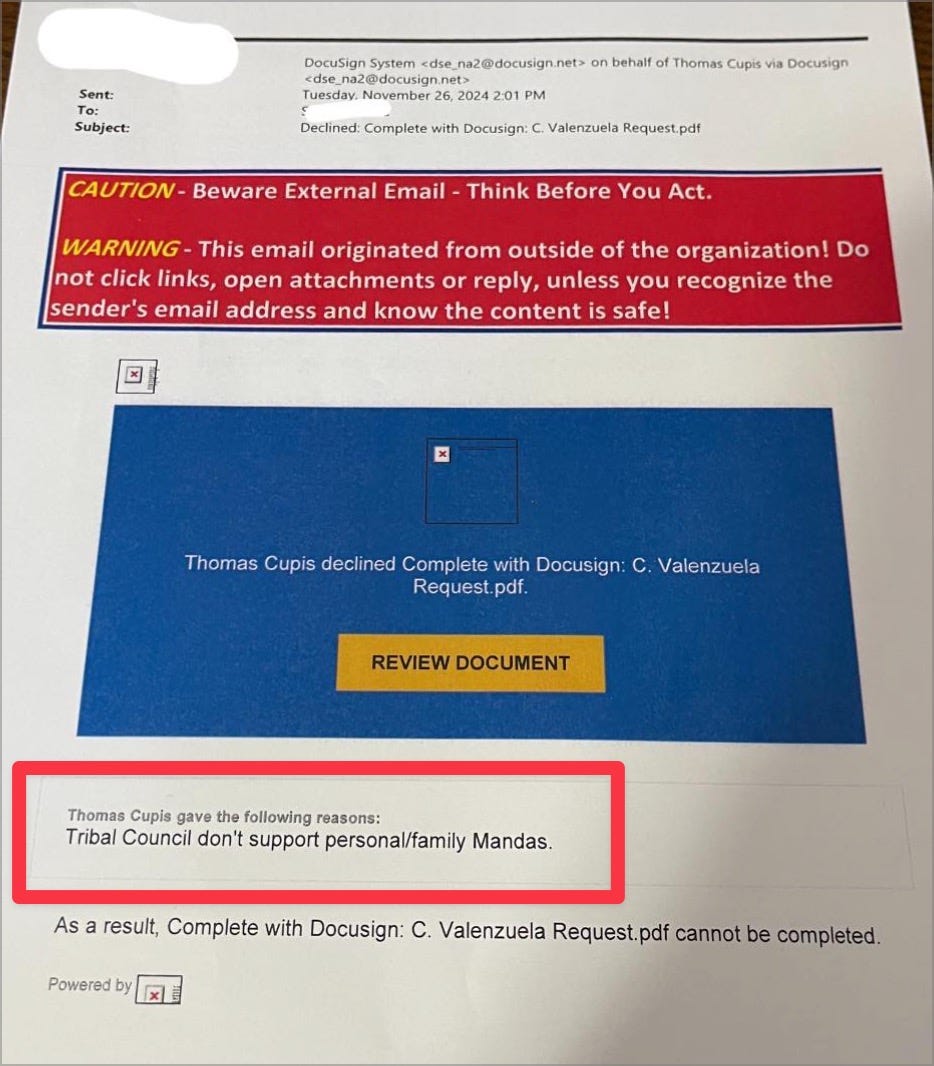Controversy Erupts Over Ceremonial Support at Pascua Yaqui: Cultural Leaders Challenge Council Over Ramada Denials
Yaqui leaders protest over ceremonial support denials.
😽 Keepin’ It Simple Summary for Younger Readers
👧🏾✊🏾👦🏾
The Pascua Yaqui community is upset 😔 because they were stopped 🚫 from using special places 🏞️ to hold important traditional ceremonies 🎉. They want their leaders 🙏 to let them use these places easily 🔑 and talk with them more 📞. This issue is a big deal 📢 because it's about keeping their traditions alive 🌿 while following modern rules 📜. The community feels strongly 💪 because their culture 🎨 and history 📚 are very important to them.
🗝️ Takeaways
🔥 Sacred Ceremonies Denied: Community concerns rise over restricted access to ceremonial ramadas.
🔍 Transparency Demanded: Leadership urged to improve communication and support cultural practices.
🔄 Policy vs. Tradition: Highlights the struggle between administrative rules and cultural sovereignty.
🤝 Council Response: Acknowledgment of issues with pledges to enhance ceremonial support.
🏛️ Cultural Resilience: Historical strength inspires continued tradition amid modern challenges.
Culture at a Crossroads
Pascua Yaqui Community Confronts Tension Between Administrative Policy and Cultural Practice
In a charged tribal council meeting on December 12, 2024, members of the Pascua Yaqui community voiced profound concerns about recent changes to cultural support services, specifically regarding access to ramadas for ceremonial purposes.
The controversy emerged when multiple community members, including an elder, were initially denied access to ramadas and firewood for Santo Pahko ceremonies.
According to documents shared during the council meeting, one denial explicitly stated that "council does not support personal mandas" - a statement that sent shockwaves through the community given the central role of mandas (sacred promises/obligations) in Yaqui ceremonial life.
"This is a denial of blessings," stated cultural leader Raymond Buelna during the council meeting. "It has been made in the past and has always been approved no problem... We want transparency and communication from our elected leadership."
The situation was further complicated by simultaneous issues at Capilla del Señor de los Milagros, where community members arrived on December 5th to find they had been locked out of their cultural grounds without prior notification. Richard Tellez Jr., Community Chairman for Yoeme Barrio Libre, expressed how this echoed historical trauma:
"It feels like what happened to us at 39th, a Capitan from San Martin locking us out of our own cultural grounds once again."
Vice Chairman Yucupicio, responding during the call to the audience, acknowledged the gravity of the situation while attempting to explain the administrative constraints: "When I heard about it, I was just as sad and devastated as anybody... For me, I learned from the elders that if they come ask for help, you figure out how to help them. It's not the money, it's how you can help."
The council described the ramada denials as a "miscommunication" due to resource management issues. Currently, the tribe has just four ramadas available and is experiencing staffing shortages in the facilities and housing departments. Nevertheless, cultural leaders challenged this perspective, pointing out that the denial email explicitly referenced a policy prohibiting support for "personal mandas."
This incident vividly showcases what Indigenous studies scholar Duane Champagne describes as the "institutional interface dilemma," which refers to the struggle to uphold cultural sovereignty within contemporary tribal administrative systems.
The community's robust reaction, mainly reflected in social media comments gathered by Cristo Rey's cultural leadership, highlights the continued importance of what Audra Simpson terms "refusal"—the assertion by Indigenous peoples of their right to preserve traditional practices despite bureaucratic limitations.
This scenario illustrates the "intra-tribal sovereignty" issue that Matthew Fletcher discusses—how tribal nations balance traditional and modern governance models while preserving cultural integrity.
The outcome, in which the council reiterates its support for ceremonial practices while recognizing the necessity for improved communication, indicates a potential pathway to reconcile administrative efficiency with cultural responsibilities.
"For me, all the time, if we can help, we will help," Vice Chairman Yucupicio affirmed during the meeting. "The Constitution of the Pascua Yaqui tells you we are to protect, enhance, provide anything that's missionary, cultural, of being and historic value. That has not changed for some of us."
The council is dedicated to creating clearer policies for ceremonial support services and enhancing communication with cultural leaders. Nonetheless, this incident highlights the persistent challenges tribal nations encounter in preserving cultural sovereignty in today's administrative systems.
The Pascua Yaqui community's cultural resilience has enabled them to overcome historical displacements and adversities. Addressing this issue might set a precedent for enhancing communication between traditional and administrative leaders—an interaction essential for safeguarding "the essence of what makes us Yaqui," as expressed by one community member.
Cultural Memory and Material Scarcity: From Cardboard to Contemporary Challenges
In a powerful moment during December's council meeting, Vice Chairman Yucupicio offered a perspective that deeply resonated with my understanding of Indigenous resilience.
Speaking about the community's history, he recalled how ceremonial structures were once "made of cardboard… But those people are what made them stronger and stronger."
This testimony exemplifies what Gerald Vizenor refers to as "survivance"—the ability of Indigenous communities to uphold cultural practices despite material challenges. The difference between the historical use of cardboard ramadas and current administrative hurdles prompts significant reflection on our understanding of support for ceremonial practices.
Previously, the community dealt with physical scarcity, while today, the focus shifts to bureaucratic structures and resource distribution.
Yucupicio's reminder is particularly striking as it subtly questions modern ideas of "necessity" in ceremonial support. His insights into the community's historical ingenuity indicate that, although material aid is essential, the real power of cultural practices stems from the community's steadfast dedication to preserving them.
This historical memory validates existing support and reminds the community of its ability to uphold ceremonies even in challenging times. It offers essential context for contemporary discussions regarding cultural support services while honoring ceremonial traditions' enduring strength.












Yaqui leaders should have access to these sacred places.